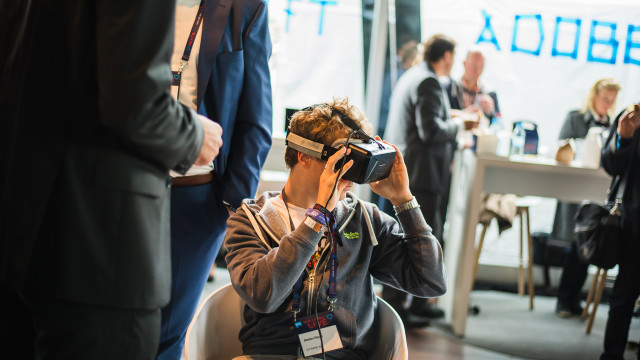The two-day tech conference Next, which happened in the middle of the four-day Reeperbahn Festival in Hamburg, showcased the future of tech.
The conference covered all things futuristic in your lifestyle, your business, and of course, the technology you will use.
David Mattin, from TrendWatching helped outline the biggest trends to look out for in 2016, and encouraged attendees to reflect on them in relationship to their own own businesses and industries:
“Where could you apply this in your vision, new business concepts, new products, services, experiences, marketing, advertising, PR?”
One of the biggest themes of the conference was the sharing economy, which is poised to reshape businesses across industries – especially the Internet of Things.
Sharing economy meets Internet of Things – Internet of sharing things
The sharing economy’s ideal is that we take ownership of assets together rather than own them individually. Until recently, this seemed to be a difficult task to accomplish, because getting access and information about the things to share was slow, complicated, and inconvenient. The “Internet of Things meets the sharing economy” means smart devices and digital services that help users share physical resources. Now we can locate, unlock, and track shared cars, bikes, and even umbrellas on a rainy day.
Two-way transparency
What started with AirBnb and Uber is now spreading everywhere. What if suppliers can also rate their customers? What if you can buy the fanciest designer t-shirts, but only if your social media channels show that you are cool enough to own it? Suffer a little, anyone? What if the barista can give you free coffee or muffin if they think you are really nice?
This is already happening on a small scale, and is changing the expectations of both sides of an interaction. It will change the provider-customer relationship completely, as no longer will the customer be king. Both sides will soon have expectations towards each other. This can lead to complete transparency on both sides of the counter… but is there space for a little mystery in between?
Instant skills
Status will be even more about ‘who I am’ rather than ‘what I have’, as customers embrace services that remove all barriers to producing great output. We all have cameras, we take pictures, make videos, create designs, play music, decorate, dance, and do sports, and we want to be exceptional at what we are doing.
So whatever our creative outlet is, the challenge will be to achieve mastery as quickly as possible. For example, have you heard about MusiClock? That’s what I’m talking about. Who and what are your customers are trying to be, and how can you help?
Currencies of change
Customers will embrace brands that reward them for constructive, healthy, self-improving behaviors. Wearable devices have been around for a while, and statistics show that people stop wearing them after six months on average. Does this mean the wearable devices have no future? Not quite. As we said, status will become even more about ‘who I am’, and people tend to identify themselves with the things they do. Getting extra points in an online game if you run 5km or make 20 push-ups? That’s all I’ve been dreaming about!
My take-away from all this? Technology might be driving us towards becoming more of who we would like to be as people. We could share more, create more, be more healthy, be more romantic, get more intimate in our relationships with others, and be more purposeful and generous in our everyday life. The question for startups is, what role could your business play in that process?
 Nordic Startup News Early Stage Startup News From The Nordics
Nordic Startup News Early Stage Startup News From The Nordics


